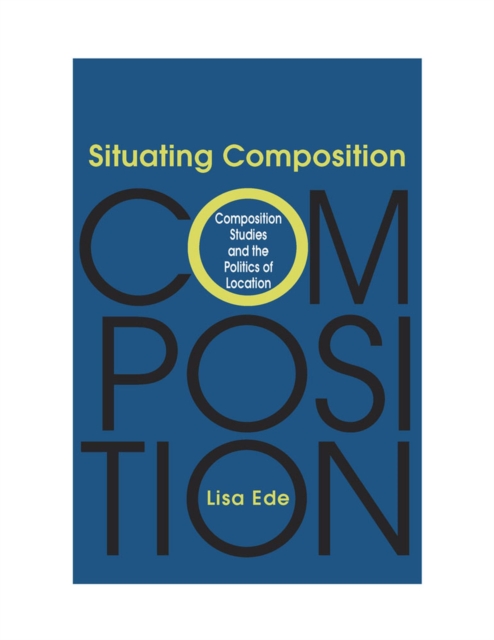
Situating Composition : Composition Studies and the Politics of Location Paperback / softback
by Lisa Ede
Paperback / softback
Description
Responding to a growing pedagogical paralysis in debates over the nature and status of composition studies as an academic discipline, Lisa Ede offers a provocative inquiry into the politics of composition's place in the academy.
The result is a timely and engaging reflection on the rhetoric, ideology, and ethics of scholarship and instruction in composition studies today.
Situating Composition: Composition Studies and the Politics of Location delves into some of the most vexing issues presently facing the field: its status in relation to English studies, the nature and consequences of the writing process movement, the uneven professionalization of composition teachers, and the widening chasm between theory and practice.
Ede interrogates key moments and texts in composition's evolution, from the writing process movement to Susan Miller's Textual Carnivals, through the interpretive lenses of historical analysis, theoretical critique, feminist and cultural theory, and Ede's own two decades of experiences as a teacher and writing program administrator.
Questioning the narratives of progress and paradigm shifts that inform the field's highly regarded recent theoretical studies, Ede urges scholars to carefully reconsider these claims, to honor the roles of teachers and students as more than dupes of ideology, and to more fully acknowledge--and utilize--the differences between the practice of theory and the practice of teaching.
As academic hierarchies of knowledge increasingly privilege scholarship over instruction, Ede warns researchers to be cognizant of the politics and power inherent in their own location in the academy, particularly when professing to speak for teachers and students.
To that end, the volume's conclusion advocates pragmatic avenues for change and proffers topics for future discussion and debate.
Information
-
Available to Order - This title is available to order, with delivery expected within 2 weeks
- Format:Paperback / softback
- Pages:240 pages
- Publisher:Southern Illinois University Press
- Publication Date:30/11/2004
- Category:
- ISBN:9780809325825
Information
-
Available to Order - This title is available to order, with delivery expected within 2 weeks
- Format:Paperback / softback
- Pages:240 pages
- Publisher:Southern Illinois University Press
- Publication Date:30/11/2004
- Category:
- ISBN:9780809325825






